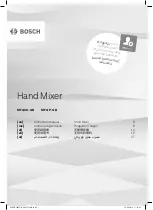
SEECTOR User Manual
seector00.doc 27.04.00
2
1. General Information
SEECTOR is the general name of a new family of digital mixers from
TeleCast Norge AS. The Seector user surfaces are dedicated
controllers for the digital audio processors Seem Seecor and NTP
625.
Seector mixers are configurable at order and include a range of
mixers from small desktop on-air mixers to large radio and TV
production consoles.
The Seector family is based on general modules that are all under
software control. These modules enable us to create a variety of
control surfaces for different applications.
Control surfaces can be made either with assign panels, with
dedicated channel controls or with a mix of both.
1.1 Console Philosophy
The Seector family is based on the well-established Seelect
principals. However the new consoles demand even more flexibility
than found in the Seelect.
This flexibility is maintained through a modular design where reliability
and customisation have been the main targets.
This section explains some basic guidelines for understanding the
Seector consoles.
1.1.1 Block diagram
The basic console functions are decided and customised during the
configuration process. All parameters needed to describe the
functions of the console are described in a block diagram, which is
stored in the audio rack. The user surface gets the required
information from the audio rack when the system is started. This
information is combined with the user configurable parameters from
the user set-up to form the rules for the user surface behaviour.
The block diagram shows the process interconnections and user set-
up possibilities that the audio rack offers to the user surface.
See Audio Rack documentation for details on block diagrams.
1.1.2 Source categories and properties.
The sources (or inputs) to the system are divided into several
categories. The categories can be sub-divided into two main groups.
•
Inputs from persons
•
Inputs from machines
A set of source properties defines the way the sources will behave
when selected into the console.
The properties include remote control functions, red light switching,
talkback possibilities and other features dedicated to each source.





































